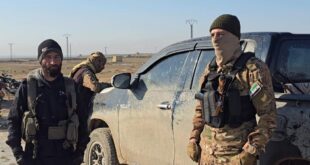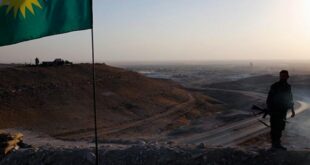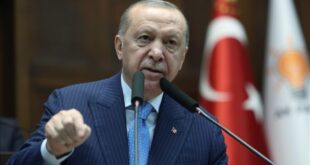Ebrahim Raisi took his oath before parliament on August 5 to complete his inauguration making him Iran’s new president.
He comes to office facing an economy battered by U.S. sanctions, a growing health crisis, fast-rising regional tensions, and difficult negotiations to revive a 2015 nuclear deal with world powers.
A former judiciary chief, Raisi has been criticized by the West for his human rights record and has been under U.S. sanctions in part over his involvement in the mass execution of thousands of political prisoners, as well as over his tenure at the judiciary.
“I will dedicate myself to the service of the people, the honor of the country, the propagation of religion and morality, and the support of truth and justice,” Raisi pledged in the ceremony, broadcast live on Iranian TV
On August 3, the controversial former prosecutor was credentialed by Supreme Leader Ayatollah Ali Khamenei, who holds ultimate power in Iran, marking the beginning of the transition from the presidency of relative moderate Hassan Rohani.
Rohani’s landmark achievement was the nuclear deal with world powers that lifted most sanctions in exchange for curbs on Tehran’s nuclear program but he fell woefully short in areas like women’s rights where he pledged modest reforms.
U.S. sanctions were reimposed after then-President Donald Trump withdrew from the nuclear deal in 2018, further hurting Iran’s economy. Tackling the country’s economic woes is expected to be at the top of Raisi’s agenda, together with negotiations aimed at reviving the nuclear deal.
“The sanctions must be lifted,” Raisi said in his inauguration speech. “We will support any diplomatic plan that supports this goal.”
Hours after Raisi’s comments, a U.S. State Department spokesman called on Tehran to resume talks on resuscitating the nuclear deal.
“We urge Iran to return to the negotiations soon,” Ned Price said at a news briefing on August 5. “For us, this is an urgent priority.”
“If President Raisi is genuine in his determination to see the sanctions lifted, well that is precisely what’s on the table in Vienna,” Price said, referring to indirect talks in the Austrian capital on reviving the nuclear accord.
“The opportunity to achieve a mutual return to compliance with the JCPOA won’t last forever,” Price added, referring to the deal by its formal name: the Joint Comprehensive Plan of Action (JCPOA).
Six rounds of nuclear talks between Iran and world powers were held in Vienna between April and June in an attempt to revive the accord. The last round concluded on June 20, with no date set for another.
Highlighting the importance of the ongoing negotiations to revive the deal, EU diplomat and nuclear deal negotiator Enrique Mora was scheduled to be among representatives from the bloc attending the inauguration.
Raisi said after his election victory that he backs talks to revive the deal. Russia, one of the signatories of the deal, sent Duma Speaker Vyacheslav Volodin to the swearing-in ceremony in Tehran.
Iranian media said several foreign officials had been invited to the August 5 ceremony, including the Iraqi president and parliament speakers from Niger, Syria, Tajikistan, Tanzania, and Uzbekistan.
Afghan President Ashraf Ghani was said to be attending the inauguration, as well as Armenian Prime Minister Nikol Pashinian.
Raisi was expected to submit his proposed cabinet immediately after the swearing-in.
Raisi also faces an immediate crisis as the United States, Israel, and Britain have blamed Tehran for a deadly attack on an Israeli-managed tanker off the coast of Oman last week and also indicated that Iran was behind an aborted hijacking attempt on another vessel in the Gulf on August 3. Tehran denies responsibility.
Iran is also battling the Middle East’s deadliest outbreak of the COVID-19 pandemic, with more than 4 million cases and upward of 92,000 deaths.
Raisi’s presidency consolidates power in the hands of conservatives following their 2020 legislative election victory, which followed the disqualification of thousands of reformist or moderate candidates.
Iran’s powerful election vetters disqualified hundreds of applicants to run in the June 18 presidential election, including strong potential rivals from among moderates.
 Eurasia Press & News
Eurasia Press & News



